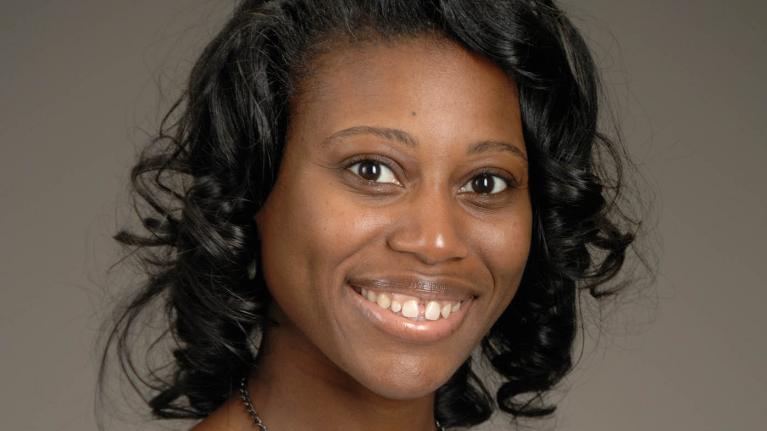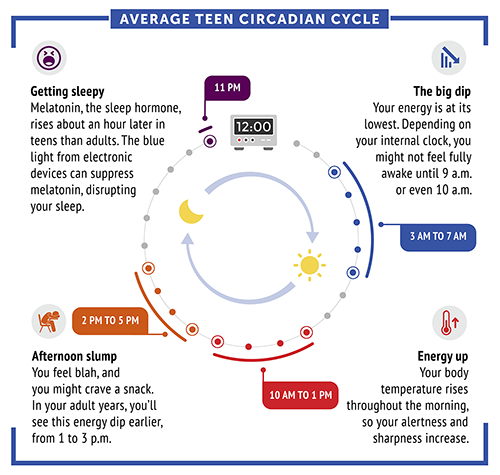
Last updated on July 24th, 2024 at 09:25 am
Sleep is second nature. But for biomedical research, sleep is a relatively new field of study. Marishka K. Brown, Ph.D., said sleep health research has exploded in the past decade or so. As the Director of the National Center on Sleep Disorders Research (NCSDR) at the National Heart, Lung, and Blood Institute, Dr. Brown talked to NIH MedlinePlus Magazine about the many facets of sleep and why it can be so hard to get.
What role does sleep play in our overall health?
Most people think about sleep as a behavior, like physical activity and diet. It’s also a part of basic biology, like breathing. Many consider sleep the “third pillar” of health. Sleep isn’t just important—it’s required for overall health and well-being. Just like air and water, you need sleep. Research in animal models showed that sleep deprivation over several days impacted their survival.
We know sleep does a lot of different things for our physical and mental health and well-being. About a decade ago there was an amazing research finding that the brain had this process to “wash” or cleanse itself during sleep. And last summer, the American Heart Association added sleep to its Life’s Essential 8™ (previous Life’s Essential 7™) checklist of measures to improve cardiovascular health.
Types of sleep
Non-REM sleep
- Stage 1: Light sleep; easily awakened; muscles relax with occasional twitches; eye movements are slow.
- Stage 2: Eye movements stop; slower brain waves, with occasional bursts of rapid brain waves.
- Stage 3: Occurs soon after you fall asleep and mostly in the first half of the night. Deep sleep; difficult to awaken; large slow brain waves, heart and respiratory rates are slow and muscles are relaxed.
REM Sleep
- Usually first occurs about 90 minutes after you fall asleep, and longer, deeper periods occur during the second half of the night; cycles along with the non-REM stages throughout the night.
- Eyes move rapidly behind closed eyelids.
- Breathing, heart rate, and blood pressure are irregular.
- Dreaming occurs.
- Arm and leg muscles are temporarily paralyzed.
How does sleep change during a person’s life?
Sleep goes from being necessary for brain development to being a part of brain maintenance and repair. Starting with early childhood, sleep is required for growth of the brain and the overall nervous system. People may not know that certain functions of the brain aren’t fully developed until your early 20s. When you are sleep deprived, it impacts that development.
When you think about adolescents, sometimes they are up late at night or parents have to drag them out of bed for school. But that’s actually their biology. Teenagers have “delayed phase.” Based on their circadian rhythms, they are more alert later in the night. By the time they are fully formed, mature adults, they get up earlier.
Older adults may get enough hours of sleep, but that sleep is more fragmented. But their sleep may not be continuous; they may get up a lot more at night. They also have “advanced phase,” where they go to bed earlier and they get up in the morning earlier. And sometimes that is natural, but it can be made worse by medication, body changes (such as with the bladder and aging), or a sleep disorder.
What are circadian rhythms?
You have an internal, 24-hour clock that signals physical, mental, and behavior changes in your body—including when you get sleepy. This repeating 24-hour cycle is called the circadian rhythm, and circadian biology is the study of these rhythms.
Circadian rhythms are most sensitive to light. Many people recommend getting bright light early in the morning for better sleep because light cues your circadian biology. If you’re not getting the appropriate amount of light at the appropriate time of day, then it essentially misaligns your circadian cues.
Circadian research around health and disease is a growing focus across NIH. For example, scientists are studying how circadian rhythms are affected by what time of day you eat or take medication.

What tips would you give for people trying to get better sleep?
NCSDR’s sleep tips for better sleep hygiene are based on research, and their goal is to help people achieve good overall sleep. However, research has shown that while sleep tips are necessary, they may not be sufficient for everyone. Getting bright light early in the morning is one, but so is having consistent sleep schedules. But there are people working atypical shifts or living in environments that make it extremely difficult to follow proper sleep hygiene. So, it’s recommended to follow as many tips as you can.
You should have a caffeine cutoff time, if possible. But we know that for several reasons, either social or economic, there are populations for whom this will not really work. Also, have alcohol cutoff times or be mindful of alcohol consumption. Alcohol will put you to sleep, but it also fragments your sleep, and you may feel worse when you wake up.
Exercise is good for whole-body health, but when thinking about your circadian rhythms and when certain hormones are active, there’s an optimal time of day to do everything. You should be mindful of exercise cutoff times—at least 90 minutes or two hours before your bedtime. If you’re exercising before your bedtime, you’re increasing hormones that signal that it’s time to be active.
Is all sleep created equal? Are certain kinds of sleep better than others?
The reason it’s recommended to get a certain number of hours per night is because sleep goes through multiple cycles. It takes that many hours to go through all the cycles. If you are shortening that time, you’re skipping all these other processes.
When you’re talking about all sleep and whether it’s created equal, sleep has some variability. It comes back to some of the things we said earlier about the lifespan. Sleep in a 6-month-old is going to be very different from sleep in a 10-year-old. You have more rapid eye movement (REM) sleep in childhood and infancy, and as you go through life, you have less of it. One of the concerns for older adults is because they have more fragmented sleep, they spend less time in “slow wave” sleep. This is critical for learning and memory. If you’re not reaching those stages, then that can negatively affect your quality of life.
Are there ways that sleep affects our health that we may not realize?
Research from across NIH has found relationships between sleep, dementia, and Alzheimer’s disease. There’s also evidence that circadian rhythms can affect cancerous tumors. And NIH is interested in the links between sleep (or sleep loss) and depression, suicide, and the risk of substance misuse.
It’s our mission to share that research and its impact on overall health with everyone.
